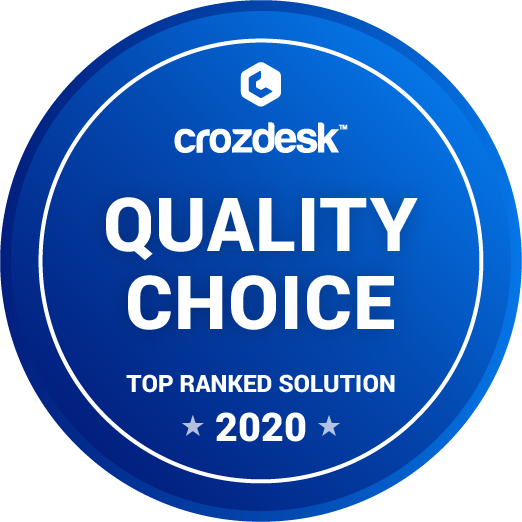
Small businesses often struggle with managing customer references, an element crucial to building credibility and attracting new clientele. With the right tools, collecting and harnessing customer feedback is simplified and transforms into a valuable asset for growth. These tools empower companies to engage clients effectively and track the performance of reference activities, ensuring optimal utilization of every satisfied customer story. Keep reading to uncover how your business can benefit from implementing these innovative tools and witness a significant improvement in customer reference management and engagement that directly supports a robust bottom line.
Small businesses often face the challenge of effectively managing customer feedback, which is paramount for their growth and improvement. Customer reference software allows these businesses to centralize their feedback processes. This software captures clients’ valuable insights and organizes them for actionable use, enabling firms to respond rapidly to market needs.
One might consider the agility such a platform brings to customer service; it is no small feat. Integrating this software into a business’s operations transforms how customer interactions are handled, tracked, and analyzed, ensuring that every piece of feedback is an opportunity for enhancement.
Scattered data can lead to overlooked details and missed opportunities for service refinement. However, by employing a dedicated system, companies ensure nothing slips through the cracks. With all information housed in a single repository, recognizing patterns in customer behavior and preferences becomes much simpler.
This software streamlines the feedback loop, making it quicker and more efficient. Small businesses can implement changes at a pace that keeps them relevant and attuned to their customers’ evolving desires. This responsiveness is critical in retaining customer loyalty and differentiating from the competition.
Integrating customer reference software into a small business’s arsenal is a strategic move. It increases the efficiency of feedback management and solidifies the relationship between the business and its clients, fostering a culture of continuous improvement and customer-focused innovation.
Enhancing Customer Engagement Strategies

Small businesses seeking to strengthen their customer engagement often adopt tools that streamline complex processes and make extracting actionable insights from customer data less taxing. The right software can simplify tasks like tracking customer interactions across various channels, ensuring a coherent and responsive engagement strategy.
The vitality of personalizing customer interactions cannot be overstated, and advanced tools provide intricate analytics that aid in crafting bespoke experiences. They enable businesses to discern individual customer preferences and behavior patterns, leading to more targeted and effective communication. This personal touch enhances customer satisfaction and fosters deeper connections.
Automation features embedded in these tools can significantly reduce the burden on customer service teams. They efficiently categorize feedback and route inquiries, freeing up staff to concentrate on more complex tasks that require human insight and empathy, thus elevating the overall customer service experience.
Responsive communication is essential, and small businesses benefit from tools that offer real-time interaction capabilities. They facilitate immediate acknowledgment of customer queries, creating a dialogue that can prevent minor issues from escalating and maintaining a relationship built on trust and reliability.
For a small business, measuring the impact of engagement strategies on customer behavior and sales is invaluable. Tools equipped with robust reporting features offer visibility into the effectiveness of different engagement approaches, guiding businesses in optimizing their strategies for higher returns on investment.
Maximizing ROI with Efficient Reference Solutions
Small enterprises typically operate on limited marketing budgets, making the return on investment a paramount consideration. By incorporating customer reference software, businesses amplify their ability to harness feedback in a way that directly contributes to revenue expansion.
The strategic application of this tool often leads to enhanced product offerings. It achieves this by accurately capturing customer sentiments, enabling businesses to tailor their products more precisely to meet market demands.
A significant advantage for businesses using this software is the boon to customer advocacy. Satisfied clients with feedback valued and acted upon are more likely to become brand ambassadors, organically increasing a company’s market reach.
Businesses benefit from the efficiency of automated software processes, which reduces administrative tasks. This frees up resources, allowing staff to focus on efforts that contribute to business growth, such as sales and development initiatives.
The analytics provided by customer reference tools offer insights crucial for informed decision-making. Thus, Businesses are equipped to make strategic choices that enhance the overall customer journey, driving retention and clientele acquisition.
Overall, leveraging customer reference software tools can significantly enhance a small business’s ability to manage feedback, engage clients, and maximize ROI. By adopting these solutions, businesses position themselves for growth, improving customer satisfaction and driving long-term success.
Raghav is a talented content writer with a passion to create informative and interesting articles. With a degree in English Literature, Raghav possesses an inquisitive mind and a thirst for learning. Raghav is a fact enthusiast who loves to unearth fascinating facts from a wide range of subjects. He firmly believes that learning is a lifelong journey and he is constantly seeking opportunities to increase his knowledge and discover new facts. So make sure to check out Raghav’s work for a wonderful reading.




